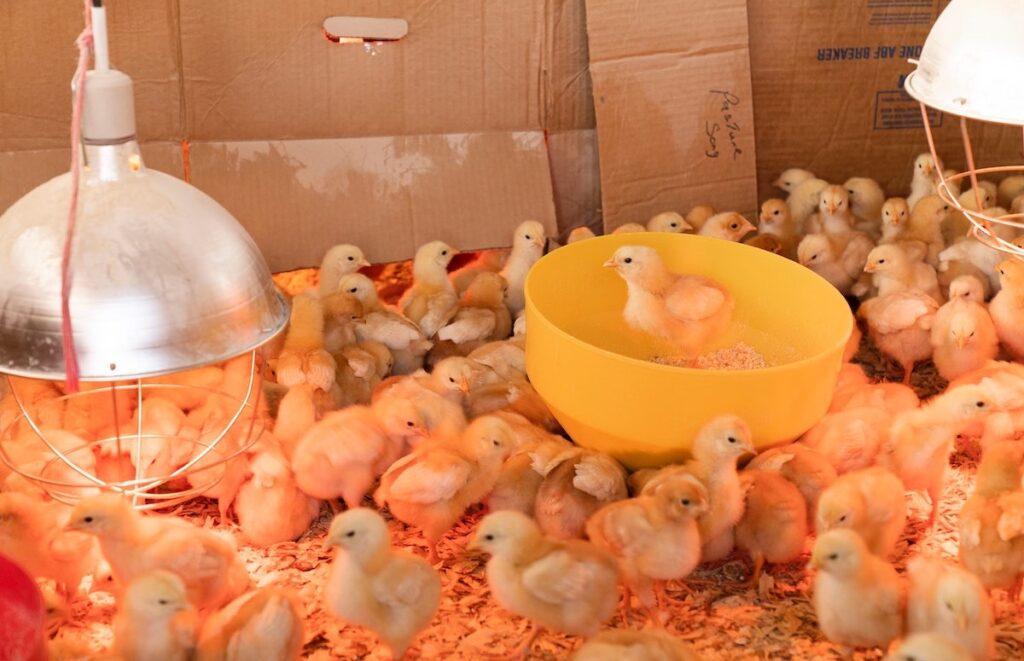Final Rule Should Be Implemented With One-Year Phase-In; Option for a 15-Year Phase-In for Laying-Hen Welfare Is Absurd and Unacceptable
Washington, D.C. – The Center for a Humane Economy, Animal Wellness Action, and the Animal Wellness Foundation welcomed the U.S. Department of Agriculture’s release last week of the proposed Organic Livestock and Poultry Standards rule, which calls for elevated animal welfare standards in organic animal agriculture.
The rule appears similar in content to the January 2017 proposed rule from President Obama’s outgoing leaders at the U.S. Department of Agriculture (USDA). That rule, however, was nixed some months later by President Trump’s USDA, and that adverse action was just the latest in decades of delay and disruption after the adoption of the Organic Foods Production Act authorizing a National Organic Program (NOP), which was to be administered by USDA’s Agricultural Marketing Service (AMS). The 1990 federal law was championed by Senator Patrick Leahy, former chairman of the Senate Agriculture Committee.

“If this rule is put into practice in a timely way, this new standard will finally deliver meaningful humane treatment standards for animals raised under the ‘organic’ label and it will give consumers more confidence and peace of mind that the label is not a hollow promise or a marketing gimmick,” said Wayne Pacelle, president of the Center for a Humane Economy.
“This rule will also be a boon to farmers, giving them an opportunity to produce a value-added product for consumers and to earn a livelihood for responsible animal care and husbandry on the land,” he said.
The new rule covers a wide array of housing, husbandry, and management topics, including the prohibition of certain painful practices, such as tail docking of pigs and cattle and debeaking of birds. Importantly, the rule sets minimum indoor and outdoor space requirements for egg-laying chickens and requires that producers provide a sufficient number of exits and outdoor enrichment to entice birds to go outside on a daily basis. It also specifies that covered porches and similar structures do not qualify as outdoor space.
Robust and meaningful organic animal agriculture standards, in the works for decades and the product of input from organic farmers all around the nation, demonstrate the changing social consensus on animals among consumers increasingly concerned about farm animal welfare. A 2015 Consumer Reports survey found that more than 70 percent of Americans believe there should be meaningful minimum-size living space requirements for farm animals raised under the organic label, and that the animals should have access to the outdoors. Yet, current regulations do not guarantee these basic protections for organically raised animals. Another Consumer Reports survey showed that more than 80 percent of Americans support the standards enshrined in the new rule.
“These standards need to be put in place a year from adoption for all species types,” added Pacelle, who has been working on this issue for a quarter century. “It is absurd that there is an option in the proposal to delay implementation of some of the laying hen standards for 15 years. Egg farmers have known this was coming for two decades, and many of them have rightly realigned production to account for these impending changes.”
“This is a pro-farmer rule if there ever was one,” said Marty Irby, executive director of Animal Wellness Action and a member of the board of directors at the Organization for Competitive Market, a national organization composed of working farmers.
“Farmers will be rewarded in the marketplace when consumers understand that ‘organic standards’ mean that animals have outdoor access and are treatment humanely from the beginning of their lives until the end,” he said. Honest-minded organic farmers have wanted this rule for three decades, and implementation cannot come soon enough for them and for consumers.”


